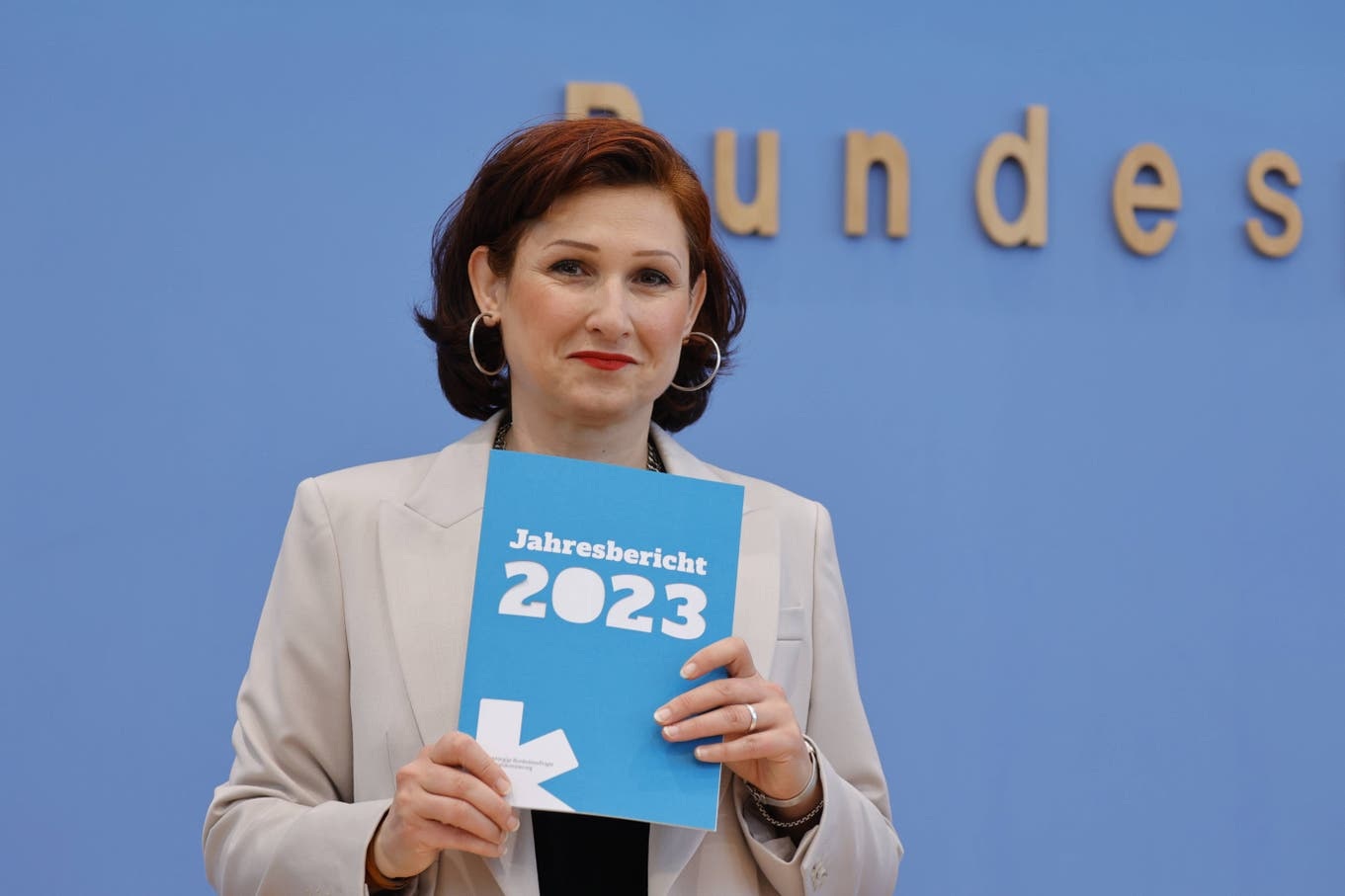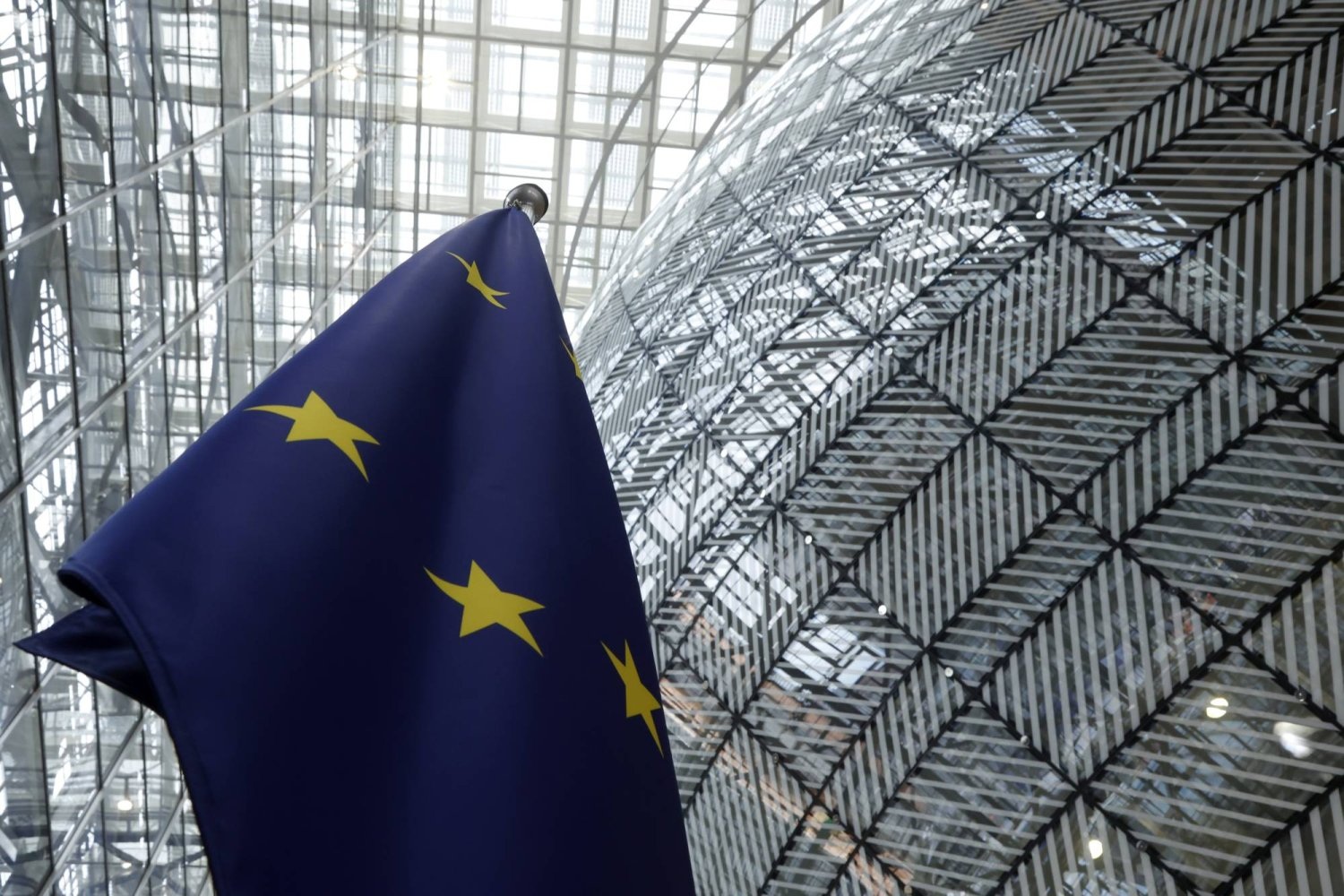European Centre for Counterterrorism and Intelligence Studies, Germany & Netherlands – ECCI
Germany reports rise in Islamophobic hate crimes
infomigrants – Criminal acts motivated by Islamophobia in Germany have increased significantly, with a 114% rise in incidents reported in 2023 by the CLAIM network. Right groups say Germany needs to invest more in protecting Muslims and all minorities.
The CLAIM network, which combats Islamophobia and anti-Muslim sentiment, reported a significant rise in anti-Muslim incidents in 2023. A record 1,926 anti-Muslim incidents were registered in Germany last year, marking a 114% rise on 2023, with incidents spiking after the October 7 Hamas-led attack on Israel from Gaza.
The most common crimes in question were verbal attacks or insults. In 178 cases, just under one in 10, physical harm was documented, including attempted arson on a mosque in Bochum, a Muslim family in Saxony shot at by a right-wing extremist neighbor, and a woman pushed onto train tracks in Berlin after being asked if she belonged to Hamas.
CLAIM consists of 50 entities and receives government support.
Speaking about the report, Reem Alabali-Radovan, the Federal Commissioner for Anti-Racism and State Minister for Integration, noted that “anti-Muslim incidents do not occur in a vacuum. They are preceded by anti-Muslim discourse and narratives that create a climate of exclusion and foster incitement and violence.”
Human rights groups have accused authorities of paying insufficient attention to this phenomenon, and even denying its existence.
Presenting the report in Berlin on Monday (June 24), Rima Hanano, leader of CLAIM, warned of mainstream parties taking over policies of the far-right, and anti-Islam parties surging in popularity.
“The streets, buses or mosques are no longer safe places for people who are Muslim or perceived as such,” said Hanano. “Anti-Muslim racism was never as socially acceptable as today and it comes from the middle of society.”
Alabali-Radovan urged individuals to actively combat the issue: “We must all be anti-racists now, clearly identify, condemn, and counteract anti-Muslim racism — in parliaments and public debates, in the workplace, in sports clubs, or among friends.”
Rise in anti-Muslim attacks
The Muslim population in Germany has been growing rapidly, tallying 5.5 million in total or 6.6 percent of the overall population. However, anti-Muslim violence is not new in Germany, in 2020 far-right attack in Hanau killed nine people, mostly of Muslim background.
Since 2017, Germany has classified hate crimes against Muslims as “Islamophobic,” distinguishing them from ethnically motivated hate. A 2023 government-commissioned study on anti-Muslim hate highlighted its prevalence and recommended recognizing its link to racism. However, the Interior Ministry has not fully engaged with the study’s authors or implemented their recommendations. Interior Minister Nancy Faeser expressed disagreement with some report findings.
CLAIM noted that the incidents recorded, are likely only a fraction of the total given a fear of coming forward and a lack of monitoring institutions. Most attacks on individuals consisted of verbal abuse and were aimed at women. There were also four attempted murders.
A 2017 EU survey found only 10 percent of Muslims reported anti-Muslim incidents, often feeling that reporting would not change anything. Among those who did report, 81 percent were dissatisfied with the police response. The
Under the International Convention on the Elimination of All Forms of Racial Discrimination, Germany is obligated to protect Muslim communities. In 2023, the overseeing committee reminded Germany to investigate and prosecute racially motivated incidents effectively.
Growing antisemitism
Antisemitism also rose following the October 7 attacks by Hamas-led militants in Israel and Israel’s military response in the Gaza Strip, according to the German government and NGOs.
The RIAS group said it recorded 4,782 antisemitic incidents in 2023, ranging from anti-Jewish comments to attacks, compared with 2,616 in 2022.
The group said that 2,787 of last year’s recorded incidents — more than the previous year’s total — took place after the October 7 attack by Hamas on Israel, which triggered the ongoing war in Gaza. Those incidents included a mid-October attack on a synagogue in Berlin, which caused widespread alarm.
In a country that is particularly sensitive about and has extensively legislated to criminalize antisemitism due its responsibility for the Holocaust, German authorities have been more vocal in denouncing that problem than anti-Muslim incidents.
Economy Minister Robert Habeck, in an emotive video, accused some Muslim community groups in Germany of being “too hesitant” in distancing themselves from Hamas or anti-Jewish hatred. Stating that Muslims should “clearly distance themselves from antisemitism so as not to undermine their own right to tolerance.”
While recognizing that antisemitism exists in many Muslim communities in Germany, German-Iranian journalist Gilda Sahebi has repeatedly criticized the notion of “imported” antisemitism, which itself thrives on a racist narrative where people are not considered part of the “nation” if they do not have German origins. She states antisemitism is not in fact “imported” as these people make up part of the country.
Last year she wrote in the German TAZ newspaper “Antisemitism cannot be combated with racism. Anyone who takes the fight against antisemitism seriously does not shift the discourse but addresses the problems.”
The rise of the far right in Germany is also posing an increasing risk to religious and ethnic minorities in general. The Alternative for Germany (AfD), which claims that Islam does not belong to Germany, made considerable gains in Germany’s European elections and has jumped to second place in polls over the past year, prompting mainstream parties to talk tougher on migration.
In an article for The New Yorker, American-Russian journalist Masha Gessen wrote that for the AfD, whose leaders have made openly antisemitic statements and endorsed the resurgence of Nazi-era nationalist language, “the spectre of antisemitism is a perfect, cynically wielded political instrument, both a ticket to the political mainstream and a weapon that can be used against Muslim immigrants.”
Failure to act
The government last year published its first-ever independent report on Islamophobia by experts it commissioned, with a series of recommendations for tackling discrimination.
Family Minister Lisa Paus has highlighted the recent dramatic rise in both anti-Muslim and antisemitic incidents and noted that the government was trying to do prevention work from an early age by funding civil society projects working on the issue.
Hanano, however, said that insufficient action had been taken so far. “We have been warning about this situation for years, it is still barely acknowledged.” She added, that what is needed “is the political will to truly fight anti-Muslim racism.”
Amidst the rising number of anti-Muslim hate crimes and discrimination, the government has been criticized by Human Rights Watch for failing to protect Muslims from racism. The NGO also pointed to the lack of a working definition of anti-Muslim racism and the absence of official data and institutional support contribute to this shortfall. Almaz Teffer a researcher on racism in Europe at Human Rights Watch emphasized the need for a clear understanding and comprehensive data to address anti-Muslim hate effectively.
However, last year (November 3), Alabali-Radovan, Germany’s federal commissioner for anti-racism, supported a groundbreaking EU-wide expression of concern over the rise in incidents. In a recent report, the European Commission against Racism and Intolerance has also recommended independent monitoring and capacity building to combat both antisemitism and anti-Muslim racism.
Teffera notes that Muslim communities in Germany aren’t a “monolithic religious group but rather a group with a diversity of ethnicities that experiences hatred and discrimination that cannot be reduced to their faith. He states that Germany should invest in protecting all minority communities because it is an “investment in protecting all of German society.”
European Centre for Counterterrorism and Intelligence Studies, Germany & Netherlands – ECCI



